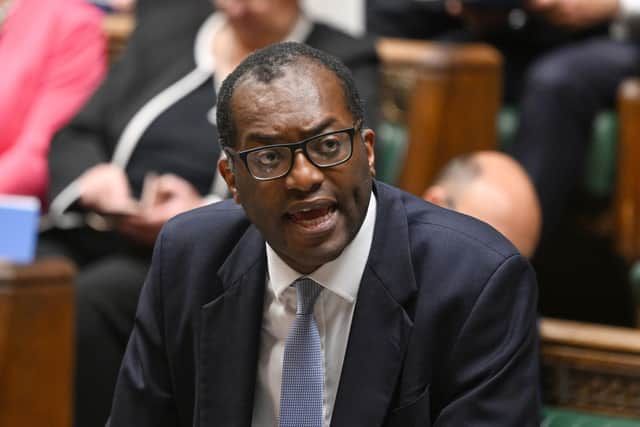Mini-budget: Liz Truss's commitment to hard-right ideology is confirmed – Ian Swanson
and live on Freeview channel 276
[Let us know what you think and join the conversation at the bottom of this article.]
She made it the centrepiece of her campaign for the Tory leadership and, now she is Prime Minister, her Chancellor Kwasi Kwarteng has wasted no time in bringing forward a massive and controversial package of tax cuts, including scrapping the top rate of tax and lifting the cap on bankers’ bonuses.
Time is short for Ms Truss. The next election is just two years away and the polls show Labour could win it. If she’s to turn the economy around, she had to act quickly.
Advertisement
Hide AdAdvertisement
Hide Ad

Kwarteng's £45 billion tax cuts have been compared to Tory chancellor Anthony Barber's 1972 budget which led to the "Barber Boom" which managed to produce some growth, but then saw inflation spiral. Economists fear this budget may have a similar effect.
It was, of course, a very different world 50 years ago – 1972 was the year of Watergate, The Godfather and David Bowie's Starman. And the budget was delivered on the same day Jimmy Savile picked up his OBE at Buckingham Palace.
Ted Heath had led the Tories to a surprise election victory two years earlier. Barber was originally going to be the minister negotiating Britain's entry into Europe, but was made Chancellor to replace the more heavyweight Iain Macleod who died after just a month in the job.
The main economic problems were inflation and rising unemployment, and the government wanted to increase growth.
Advertisement
Hide AdAdvertisement
Hide AdBut while Barber, like Kwarteng, delivered a massive reduction in taxation, the specific measures were very different.
Barber's package included rises in pensions and benefits, as well as lifting 2.75 million people out of income tax by raising thresholds, and a reduction in purchase tax, the forerunner of VAT. Newspapers the next day reported how prices were slashed overnight on "luxury goods" like "television sets, refrigerators, washing machines and cameras".
Kwarteng, in contrast, is penalising people on benefits if they don't work enough hours, has done nothing to take the poorest out of taxation, and ignored VAT apart from announcing VAT-free shopping for overseas visitors.
The Labour opposition welcomed at least some of the 1972 budget measures and said some should have been introduced earlier; Kwarteng's plans have been lambasted as "morally bankrupt", "casino economics" and "a massive gamble with the nation's finances".
Advertisement
Hide AdAdvertisement
Hide AdBarber himself apparently disagreed with the 1972 policy, but Heath was enthusiastic. No-one doubts that Kwarteng is fully signed up to the measures he announced.
And behind the economics of the mini-budget lies the major political shift which Liz Truss’s arrival at Number Ten represents. She makes no bones about: when it comes to taxation, she is not interested in redistribution to help the poor; it’s all about growth and she believes the way to achieve that is to give tax cuts to the rich.
It reflects the Prime Minister’s unashamed commitment to a hard-right ideology which is likely to lead to plenty more stark and controversial policy changes, not least in slashing regulations, which has prompted concern about environmental protection and workers’ rights.
Ms Truss knows she has one chance to put into practice the right-wing theories she believes in, so she is going all-out for it.
Comment Guidelines
National World encourages reader discussion on our stories. User feedback, insights and back-and-forth exchanges add a rich layer of context to reporting. Please review our Community Guidelines before commenting.
